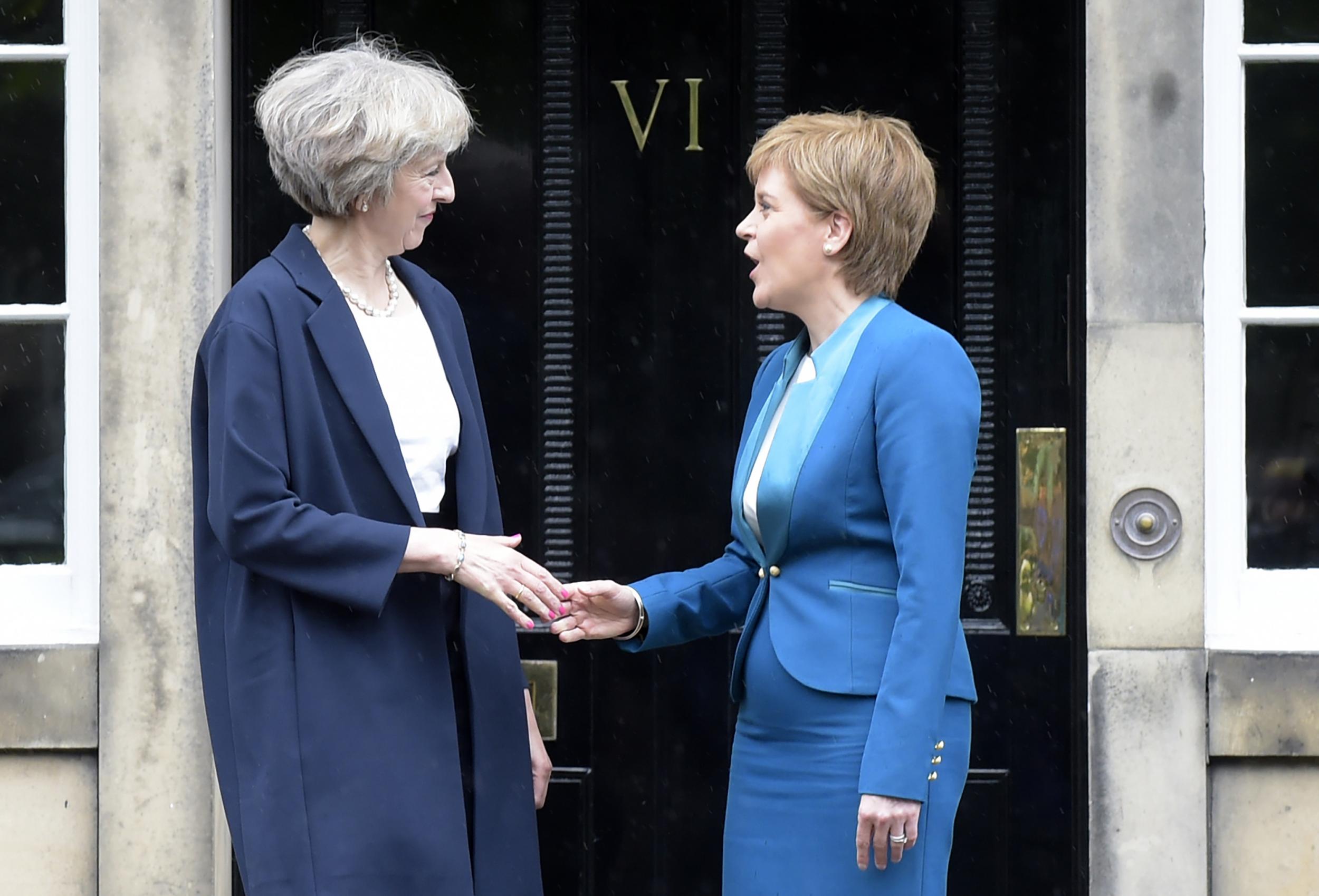Downing Street casts doubt on Nicola Sturgeon's post-Brexit proposals for more Scottish powers
No 10 also said the Government thinks there should not be a second independence referendum

Downing Street has poured cold water on Nicola Sturgeon’s proposals for more powers for a post-Brexit Scotland, saying it is “already the most powerful devolved nation in the world”.
Theresa May’s official spokesperson said the Prime Minister will “carefully consider” Ms Sturgeon’s plans, including an option for Scotland to remain inside the EU’s single market without the rest of the UK. But he added that ministers aim to deliver “a UK-wide Brexit”.
Ms Sturgeon’s paper, called Scotland’s Place in Europe, proposed the UK as a whole should remain in the single market and customs union.
But the First Minister’s document goes on to set out how, with a substantial transfer of new powers to Holyrood, Scotland could stay in the unions without England and Wales.
Asked about the extra powers, Ms May’s spokesperson said: “Scotland is already the most powerful devolved nation in the world. It has been given a huge number of powers and that has been a real success.
“Devolution as a whole has been a success for the UK. As we leave the EU that’s going to be an important factor and that’s why we are working closely with Scotland and the other devolved administrations.”
He added that Ms May had spoken to Ms Sturgeon and would “carefully consider” her paper, which will be discussed at the next meeting of the Joint Ministerial Committee, involving all UK devolved areas.
The spokesperson said the Government was clear in its belief that there should not be a second independence referendum in Scotland, something Ms Sturgeon has threatened if the nation is taken out of the single market.

He added: “The Government is committed to getting a deal on exiting the EU that works for all parts of the UK, which clearly includes Scotland, and works for the UK as a whole.
“The best way for that to be achieved is for the Government and devolved administrations to work together.”
Launching her paper, Ms Sturgeon said she accepted there is a mandate in England and Wales to take the UK out of the EU, but not that there is a mandate to take any home nation out of the single market.
She said: “It would make no economic sense whatsoever for the UK to leave the single market. It would be entirely democratically justifiable for the UK to remain within it.
“So, the Scottish Government will continue to argue and build common cause with others of like mind, for continued UK membership of the single market.
“However, I reluctantly accept that as things stand, given the rhetoric of the Conservative government, that seems an unlikely outcome.”
The “second strand” of her paper proposes ways in which Scotland could stay in the single market, through the European Free Trade Association and the European Economic Area, even if the rest of the UK chooses to leave.
Join our commenting forum
Join thought-provoking conversations, follow other Independent readers and see their replies
Comments
Bookmark popover
Removed from bookmarks